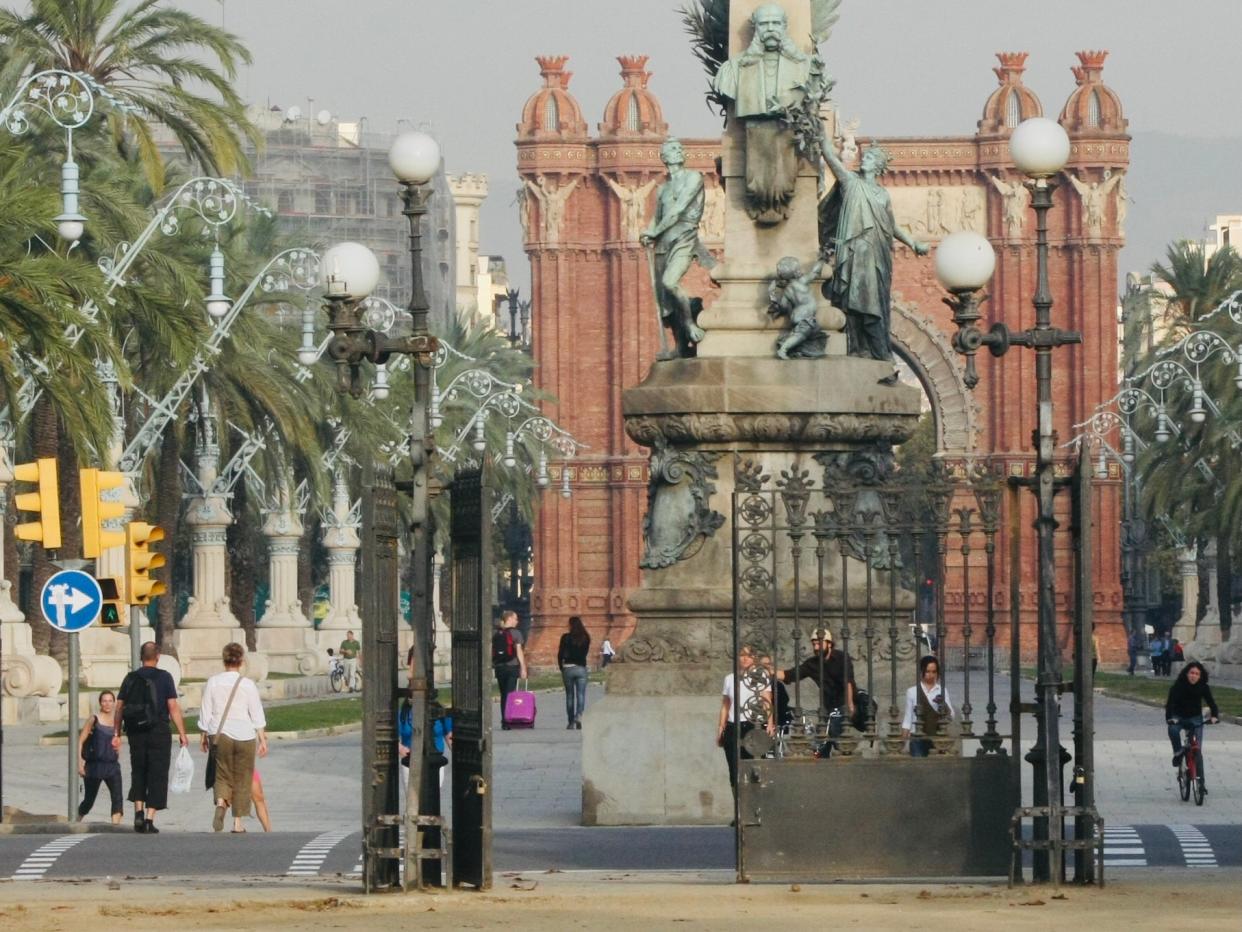Europe opens up to tourism – but what exactly is the EU planning?

Gate expectations: the European Union is trying to coordinate opening up travel to tourism hotspots such as Barcelona
(Simon Calder)“Time to revive the EU tourism industry and for cross-border friendships to rekindle – safely.”
That is the view of the president of the European Commission, Ursula von der Leyen. She tweeted: “We propose to welcome again vaccinated visitors and those from countries with a good health situation.
“But if variants emerge we have to act fast: we propose an EU emergency brake mechanism.”
Brussels is proposing that travel restrictions are eased, with fast-track access for visitors who have been vaccinated.
But the new proposals can be implemented, modified or ignored by member countries.
These are the key questions and answers.
What is the EU saying?
European nations, especially those in the south, have been hit extremely hard by the collapse of tourism. Last summer, a jumble of travel restrictions – which in the case of the UK got more and more tangled as the months went on – put paid to tens of millions of holidays, and billions of euros in spending.
The recommendation from Brussels is: “There is room to ease travel restrictions, particularly for those already vaccinated.
“This proposal aims at progressively resuming travel from third countries in a safe manner, relaunching tourism, especially in view of the summer season, and business travelling, thus fostering the recovery of Europe’s economy.”
Read more: Which countries are on the red list?
So what does that actually mean for travellers from the UK?
Access will be relatively easy once the main summer season gets under way. Bear in mind that from a tourism point of view, the UK is by far the most important “third country” for the European Union. These new rules are aimed squarely at getting British holidaymakers back on the beaches.
The EU says: “The progress in having the population of a third country vaccinated against the virus should be taken into account when assessing the epidemiological situation in that country.” So the UK can expect to be given a gold star – which might mean that we’re all welcome with minimal formalities.
People who have had both jabs could get preferential treatment?
Yes. Vaccinated travellers will be able to swerve restrictions. The EU says: “Scientific advice and empirical evidence on the effects of vaccination are becoming increasingly available and consistently conclusive on the fact that vaccination helps in breaking the transmission chain.”
The EU also says children “should be able to travel with their vaccinated parents” so long as they get a negative PCR test result within 72 hours of arriving in the European Union – but stresses “member states could require additional testing after arrival”.
Europe has been talking for weeks about the ‘Digital Green Certificate’. Will we need one?
In a surprise move, born out of pragmatism, the EU has said it will urge countries to accept “third-country vaccination certificates”.
The proposal says: “Until the Digital Green Certificate Regulation is adopted and becomes applicable, member states should be able to accept third-country certificates based on national law, taking into account the ability to verify the authenticity, validity and integrity of the certificate and whether it contains all relevant data.”
The UK government has promised to provide vaccinated travellers with some kind of official proof once international leisure travel resumes. This should suffice until some kind of internationally agreed certification is ready.
What if things take a turn for the worse?
This is a real concern for the many EU nations – particularly those in the north of Europe, who don’t have millions of tourists each summer and are worried about the risks that opening up to tourism will bring.
An “emergency brake” mechanism will come into play if a variant of concern emerges – with limitations on entry for the purpose of “preventing its import and spread”.
Will it work?
The European Commission hopes so. But every EU country is sovereign, and – as was demonstrated last summer – in the race for holidaymakers it may well turn out to be every country for itself.
Denmark has already opted out, and given the highly variable coronavirus rates across Europe, the chances of a coordinated opening-up look slim. The traveller will be well advised to pay more attention to individual nations’ policies than to EU announcements.
Read More
UK Covid-19 vaccinations: Latest figures
Which countries will be on the green list? Predicted holiday destinations
Simon Calder’s expert answers to 24 of your most burning 2021 travel questions

